While Juneteenth might be new to your lexicon since President Biden declared it an official federal holiday in 2021, it is in fact the oldest celebration of the emancipation of slavery in the United States. Despite having much work left to do to create real racial equality as a nation, as an ally, I think today is a time for reflection, self-improvement, and recommitting to the fight for justice. I hope you'll join me!
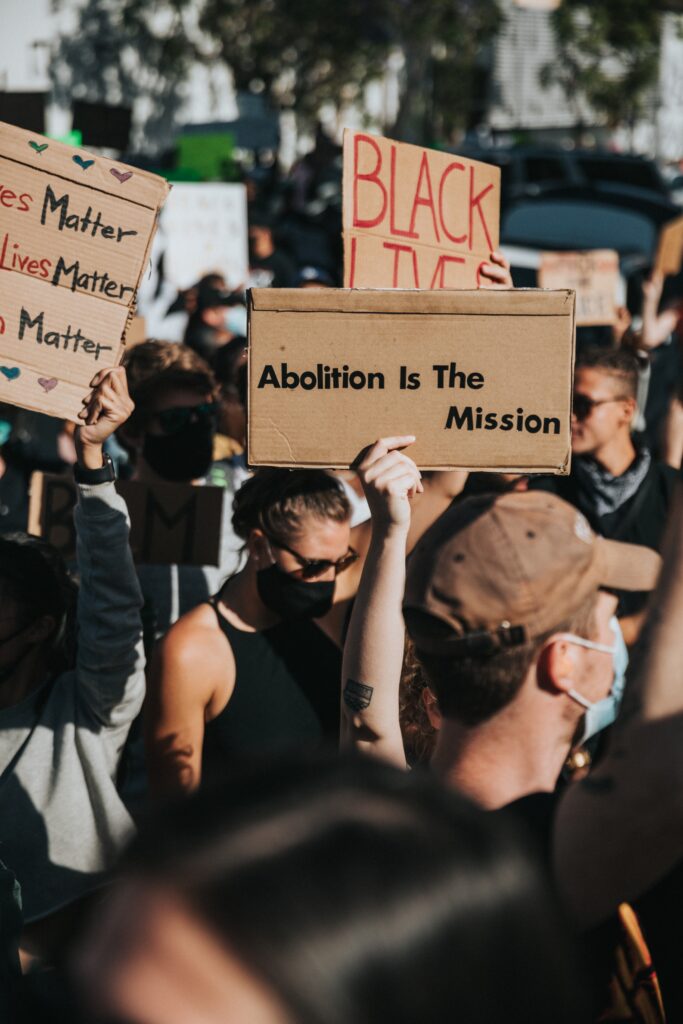
P.S. As a white woman who has faced very little adversity in her life, I'll be the first to admit that I am still learning how to navigate the world of being an effective ally. If I've misrepresented any information in this post or have otherwise been insensitive, please don't hesitate to let me know in the comments below so I can fix it!!
Jump to:
What Is Juneteenth?
A portmanteau of "June" and "19th," Juneteenth is the anniversary of the day that the last 250,000 enslaved people in Galveston, TX received the news that the Civil War had ended and that they were liberated from slavery by The Emancipation Proclamation. Also called Freedom Day or Emancipation Day, this was in 1865 — a full two and a half years after Abraham Lincoln signed the document.
The first Juneteenth celebration was in Galveston in 1866, on the anniversary of that joyous day. As those 250,000 Black people migrated throughout the country, they took Juneteenth celebrations with them. However, it was only last year – 2021 – that Juneteenth became a national holiday.
While I only learned of Juneteenth when I moved to the South nearly a decade ago, its existence has been a fact for generations. Now, nearly 160 years later, our country is in the midst of a long-overdue racial reckoning. My hope is that the symbolic gesture of making Juneteenth a nationwide holiday will create a larger platform to discuss solutions to – and eventually erase – the pervasive systemic racism in America.

Injustice & Inequality Still Abounds
For those who would prefer to believe that racism doesn't exist in America, the facts sadly show us otherwise. While this is by no means a comprehensive list of the ways that systemic inequality rears its angry head, the following issues should be more than enough to give you pause:
- The Wealth Gap. Regardless of your political beliefs, the fact remains that a serious wealth gap exists between Black and white families. I speak not just of income disparity (which does exist), but actual generational wealth. The most recent figures show that the average Black family has just $0.15 of accumulated wealth per the average white family's $1. The oft-heard argument that this is a matter of financial literacy and choices neglects to recognize that generations of Black families were largely excluded from national wealth-building policies like the GI Bill of 1944 and the 1862 Homestead Act.
- The War on Drugs & Prison Labor. While illicit drug use and drug sales figures are roughly the same between Black and white people, Black people are 2-6 times more likely to be incarcerated for it. Outside of drug arrests, Black people make up just 13% of the population but account for nearly 34% of the imprisoned population. Add to that the fact that prison labor is a multi-billion dollar industry and you can start to see an alarming trend. Prison labor is a form of modern day slavery, period. Consider that inmates in California earn just $1.45 PER DAY risking their lives fighting wildfires, and are then ineligible to become firefighters when they are released.
- Police Violence. The deaths of Breonna Taylor, George Floyd, Daunte Wright, and many more Black people have died at the hands of the police since time immemorial. These deaths helped to spur the racial reckoning we now find ourselves in, but the list of the dead grows. Black people are more than 3 times more likely to die at the hands of the police than white people. Worse, Blacks who are killed by the police are more than 2 times more likely to have been unarmed when they were killed.
- Food Apartheid. Economic inequality and structural racism also contribute to an unjust food system. From neighborhoods of color being less likely to have access to grocery stores to farm subsidies going to primarily white farmers, the state of Black food sovereignty is woefully behind the times.
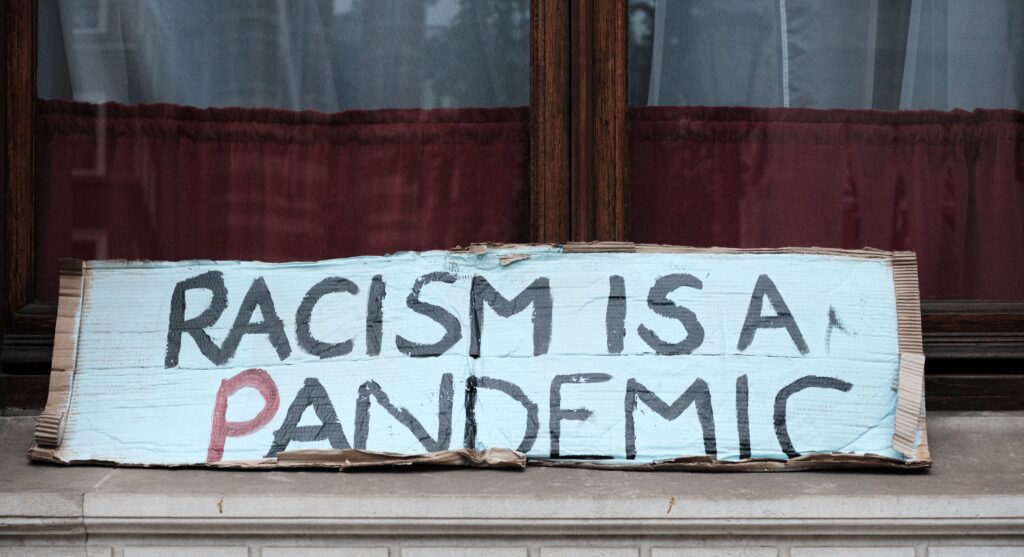
Ways To Honor & Serve On Juneteenth
As a white person, I'm not sure I can necessarily "celebrate" Juneteenth — while I am certainly ecstatic that slavery was indeed abolished in the USA (though prison labor is still an existing artifact of slavery and it's clear that racism still exists), I believe my role is to instead honor the cultural significance of what this holiday means to my Black neighbors.
I suppose it feels similar to Memorial Day in that way. Juneteenth is a somber moment of remembrance of our country's painful, violent past, and an opportunity to reflect on how to promote anti-racism in our community.
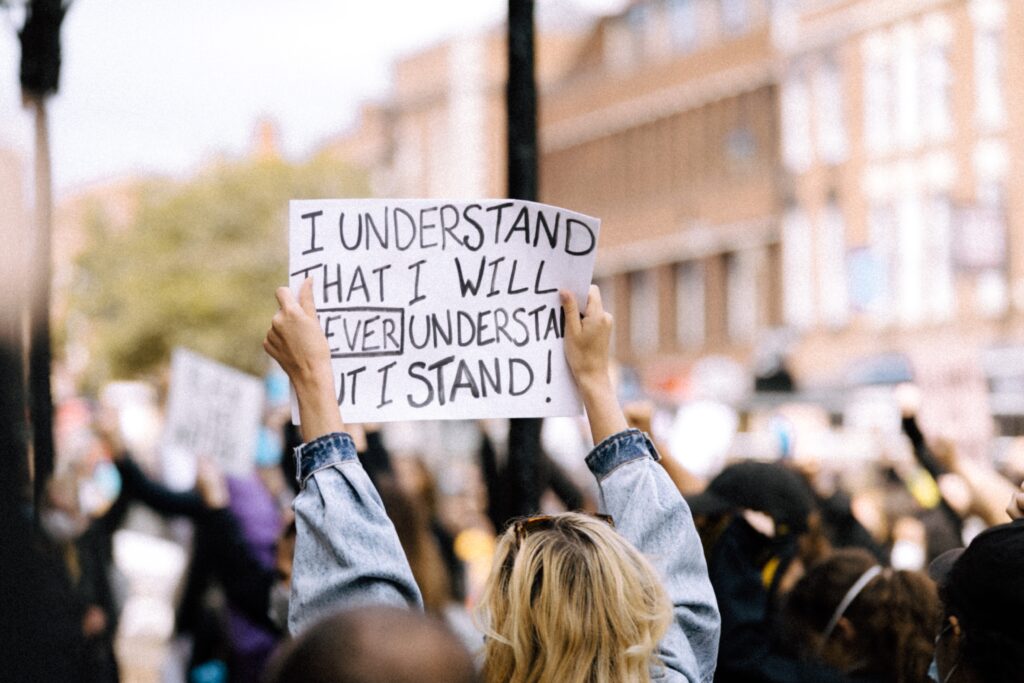
Here are some ways I believe that the ally community and I can be of service, today and every day. I hope that you'll join me!
Take Action!
- Support Black-owned businesses & eat at Black-owned restaurants. You're going to buy things anyway, so do what you can to support the Black community when you can! Be intentional about buying from Black-owned businesses, write positive review about said businesses, and promote them by telling your social networks about how awesome they are.
- Donate to charities that support Black causes. Whether you prefer to donate to organizations working towards policy reform, college funds, community enrichment and restoration, legal defense or bail funds, mental or physical health funds, your dollars can make a difference. While there are MANY worthy organizations out there, this post is a great place to start looking.
- Vote for candidates who are committed to Black equality. If I'm being honest, despite being annoyingly optimistic in most facets of life, I'm disgusted with the state of American politics. I have a hard time believing that we'll ever rise above the inherent flaws of a two-party system, the electoral college, and the fact that those who have power will do whatever they can to keep it. For most of my adult life, I've written in 3rd party candidates in protest. That said, it's the system we have, and perhaps our best option is to vote for the lesser evil.
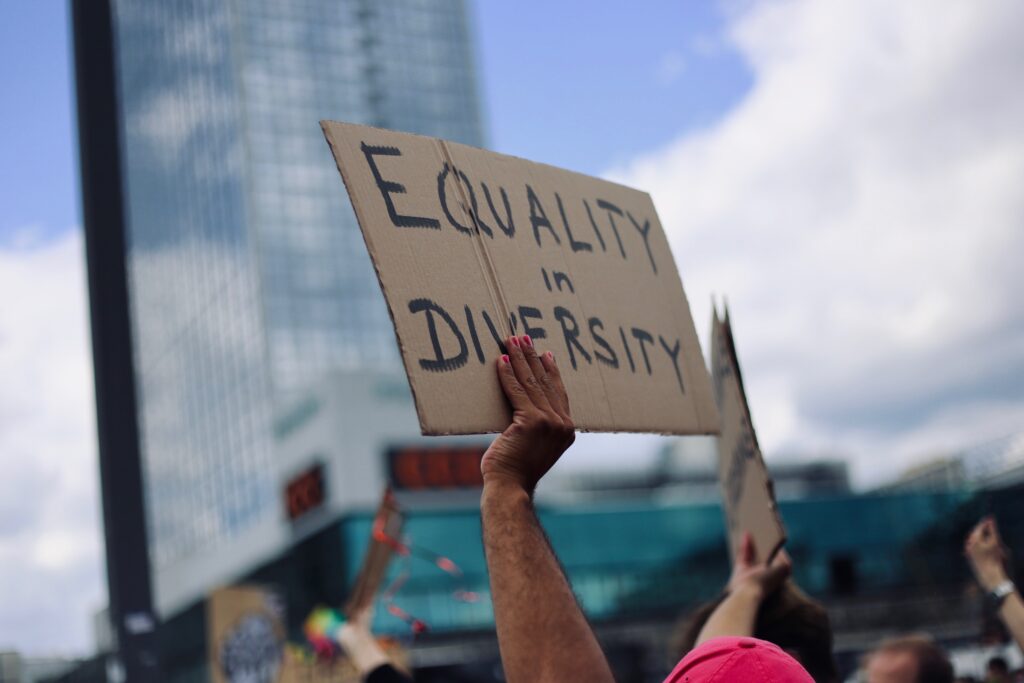
Learn.
- Read books by Black scholars and storytellers. I'm working my way through this list.
- Educate yourself about the history of our nation as pertains to our Black countrymen. I'm starting here.
- Listen to Black podcasters and influencers about ways you can support the cause of liberation. This Top 100 List of Black Podcasters in 2024 is a great place to start.
- Go to museums that focus on Black history. I'd like to visit every one on this list.
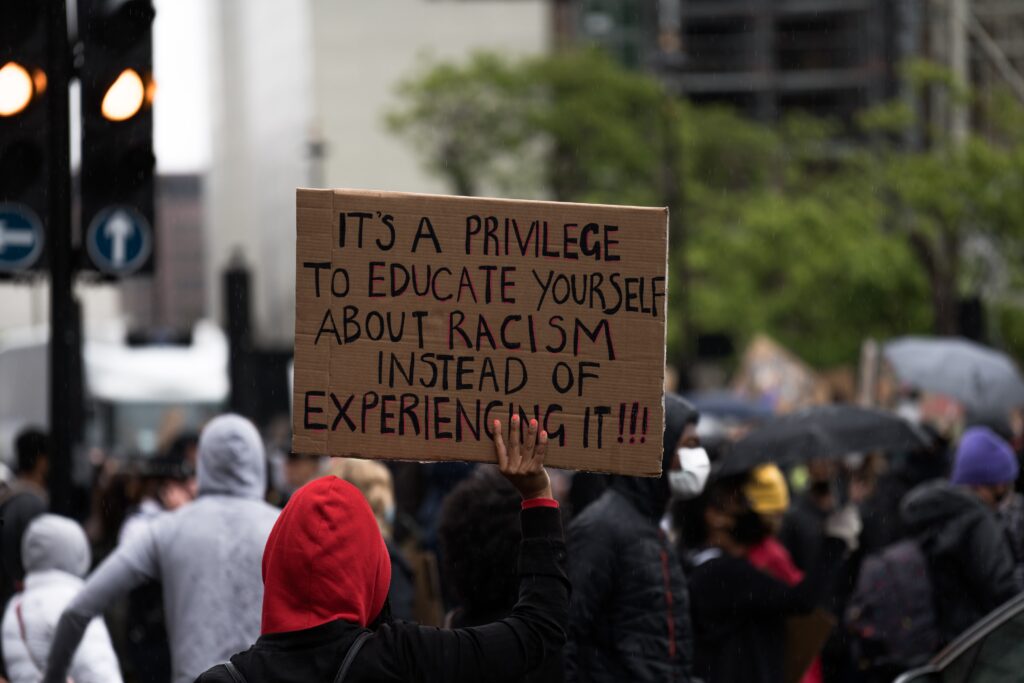
Be Respectful.
- Don't make today about you. Discussing race politics might be uncomfortable, but it's necessary. And remember that listening is more important than talking. Be the change you want to see in the world because it's the right thing to do, not because it'll make you look good on social media.
- Don't be culturally appropriative. Appreciating another culture is different from claiming pieces of it as your own. I think this is a useful article to help you spot the difference.
- Call out bad behavior when you see it. Silence in the face of discrimination is akin to violence. Yes, it requires bravery to address racism, but don't you want to be a part of the solution? This piece by Harvard Business Review does a great job giving real, actionable steps on how to address racial injustice.
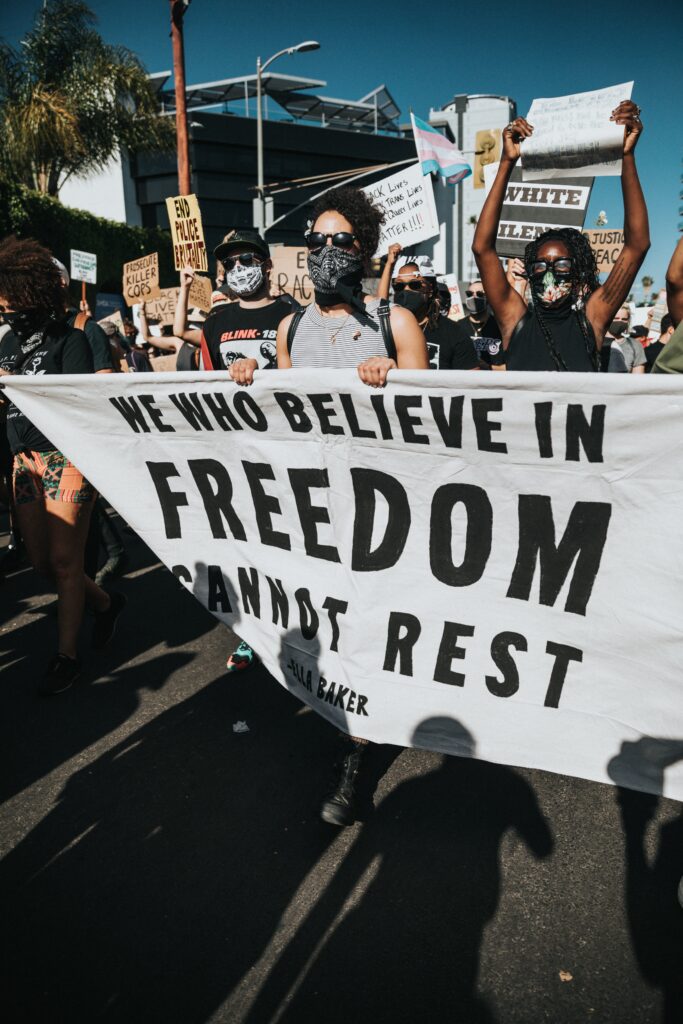
Black Food Creatives To Follow
You didn't think I'd forget about the food, did you? As with any holiday or family gathering, there's bound to be a lot of food. Since food is one of the great equalizers (after all, we all have to eat!), and the fact that Black foodways have unmistakably shaped American cuisine, I figure there's no better day to celebrate Black food creatives.
This Juneteenth, I wanted to give a spotlight to Black chefs and creators in the food space. If you haven't yet tried the food of these amazingly talented humans, I hope you will today!
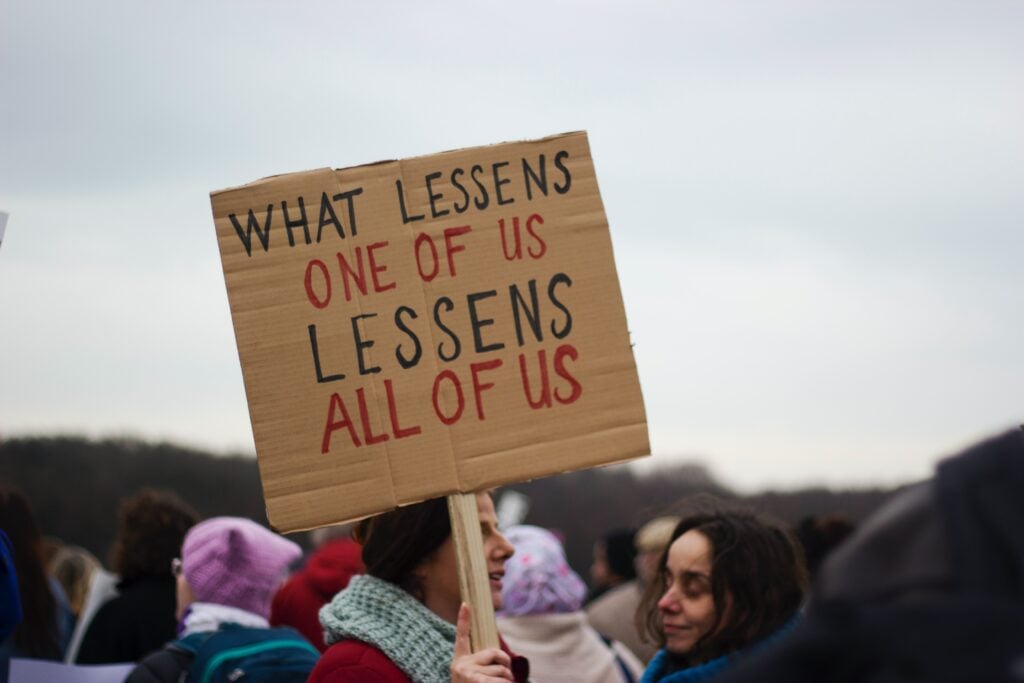
Black Food Bloggers
First and foremost, start with Eat the Culture! They have an amazing library of food bloggers, cookbook authors, and chefs to follow. From their website,
"Eat the Culture creates a community-centered safe space for Black culinary creators and entrepreneurs by providing resources to grow their business and build a bridge for equity and representation in food media. Our purpose is to nurture and support Black culinary creators and entrepreneurs in elevating their craft and uplifting and amplifying the culinary heritage across the African diaspora."
Some of my favorite Black food bloggers that I go to for inspiration include:
- Food Heaven Made Easy - Wendy and Jess are Registered Dietitians with Master’s degrees in nutrition. They're also BFFs who love to eat, cook and nerd out about anything nutrition related. Their recipes are also SUPER DELICIOUS!
- Clean Foodie Cravings - Whether you're looking for Whole30, Keto, or just plain ol' clean eating recipes, Charlotte has you covered! Her recipes run the gamut of flavors, and I haven't tried a single recipe I haven't loved.
- Sweet Potato Soul - If you want to cut back on grocery costs, embracing a primarily plant-based diet can seriously help. Jenné offers up HUNDREDS of delectable vegan meal ideas, many of which have an awesomely Southern flair.
- Divas Can Cook - This site is chocked full of authentic Southern family recipes, recipes that Monique developed and tweaked to perfection, and a few non-traditional ones sprinkled throughout for good luck. If you love Southern food, this is your one-stop-shop for filling your belly and soul.
- On Ty's Plate - Here you'll find you will find tried and tested tasty recipes that are simple, budget-friendly, with the everyday cook in mind. Ty's specialty is Southern Comfort but as a sincere foodie, she also shares an eclectic mix of culturally inspired recipes from around the world.
- Foodie in New York - If you love to bake, you're going to fall head over heels for Vallery Lomas. She won Season 4 of The Great American Baking Show, and it's not hard to see why! I often thumb through her amazing cookbook Life is What You Bake It when I'm looking for a new and exciting dessert recipe.
- Grandbaby Cakes - Jocelyn Delk Adams one of my first food blogger crushes. I legit want to be like her. Her recipes span from Southern soul food classics to the most amazing desserts. She's also bursting with the BEST, most joyful energy, which you can feel in her writing and television spots. Follow her. You'll see.
- AND THERE'S SO MANY MORE.
Cookbooks From Black Chefs
I have had the privilege of cooking from each of these incredible cookbooks, and I have a feeling you'll love them as much I as do.
Please consider buying these books from a Black-owned bookstore if you can!

The Taste of Country Cooking by Edna Lewis
Buy Now →
In Pursuit of Flavor by Edna Lewis
Buy Now →
Grandbaby Cakes by Jocelyn Delk Adams
Buy Now →
In Bibi's Kitchen by Hawa Hassan
Buy Now →
Life Is What You Bake It by Vallery Lomas
Buy Now →
Marcus Off Duty by Marcus Samuelsson
Buy Now →
The Cooking Gene by Michael W. Twitty
Buy Now → Buy Now →
Buy Now → 
The Red Rooster Cookbook by Marcus Samuelsson
Buy Now →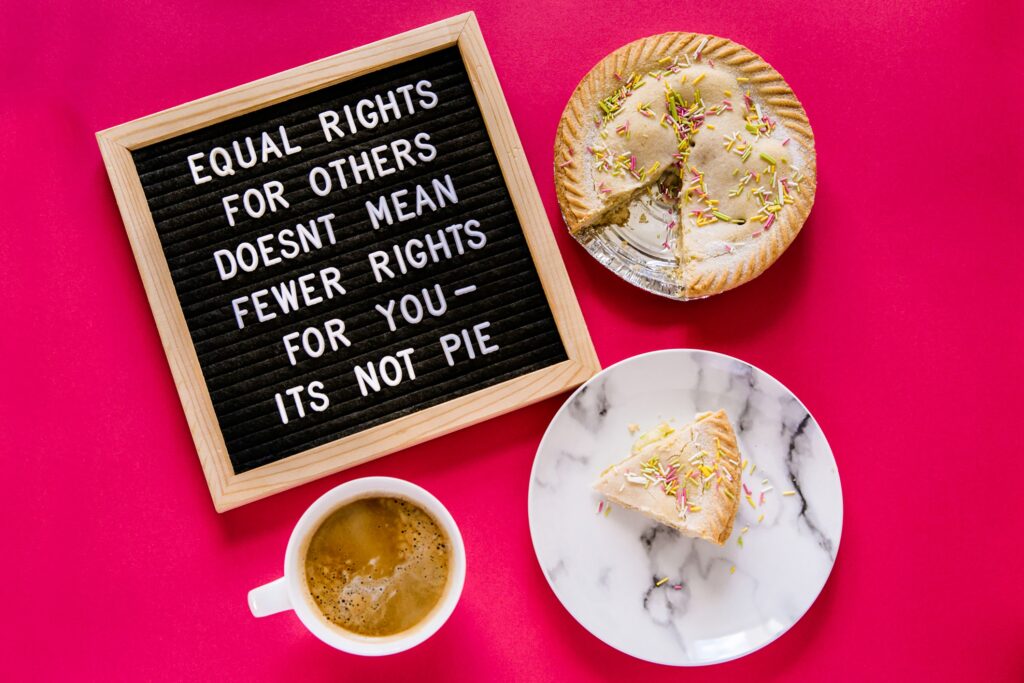
Black-Owned Food Businesses
You all know I'm a sucker for a good, store-bought hack to get a delicious dinner on the table in no time flat. These Black-owned brands represent the best of the best:
- Basbaas Foods - From Hawa Hassan, author of In Bibi's Kitchen. These African-inspired sauces and condiments hit all the mouth feels: Sweet, salty, acidic, spicy, and savory.
- Berhan Grains - The absolute best teff (an ancient grain that is gluten-free) on the market!
- Beaucoup Flavor - Created by an industry expert with insider experience, Beaucoup's products are the kind of food chefs make for themselves. Plus, their packaging is FIRE.
- Callaloo Box - Callaloo Box is a Trinidad and Tobago & Caribbean online grocery & subscription box service delivering seasonings, condiments, spices, pepper sauces, drinks, snacks & more directly to your door!
- Glory Foods - You might've seen the instantly recognizable orange sunburst logo of Glory Foods on the grocery store shelves. This family-owned business has been at it since 1838.
- Hillside Harvest - If you love hot sauce like Joe and I do, you're gonna flip for Hillside Harvest's amazing line.
- Iya Foods - Iya Foods promises to create everyday foods with a touch of innovation using African superfoods for nourishment and extra flavor. They're delicious.
- Partake - You might've seen Partake's cookies on the shelves at your local Trader Joe's. If you have any food restrictions, it's likely they have a cookie that will work for your diet. Oh, and they're really good, too.
- Yoélé - If you have yet to try the grain known as fonio, you should definitely give it a shot. Yoélé foods not only has a delectable line of quick-to-prepare meals (the Jollof Rice is amazing!), but they're also paying it forward by supporting West African smallholder farmers.
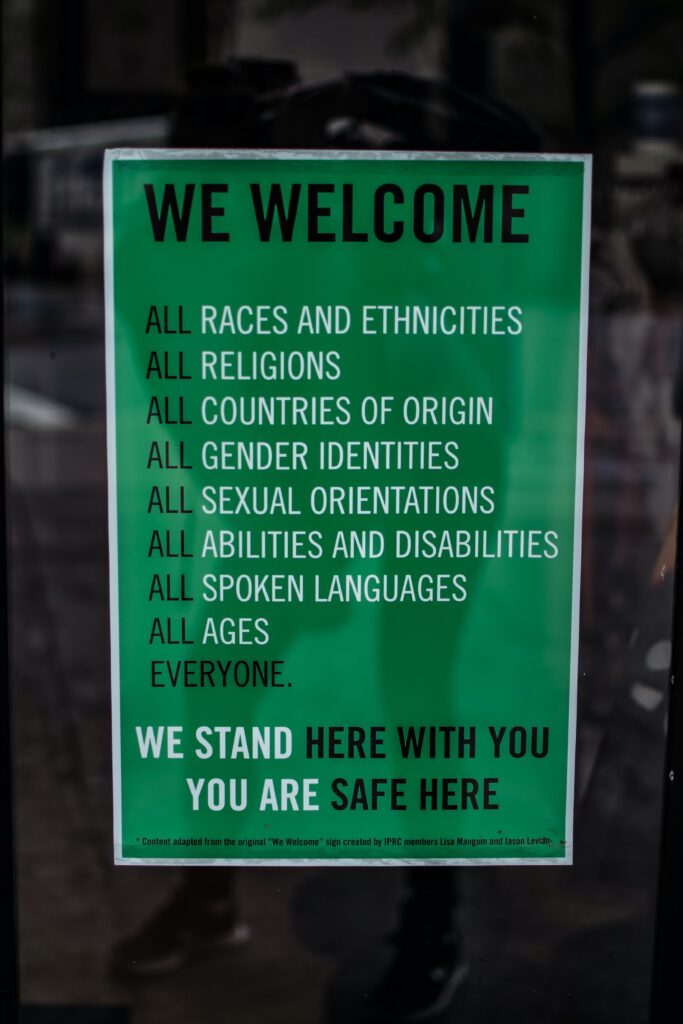

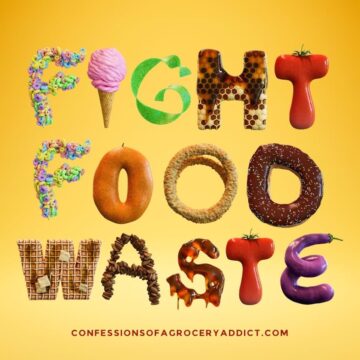
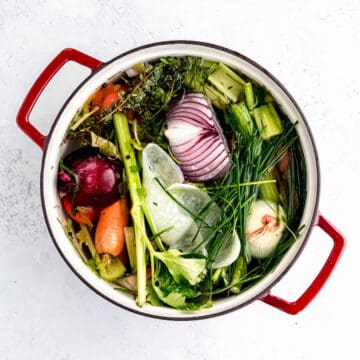
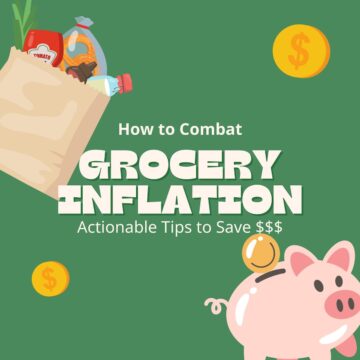
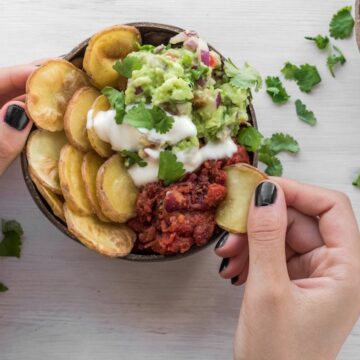




Comments
No Comments